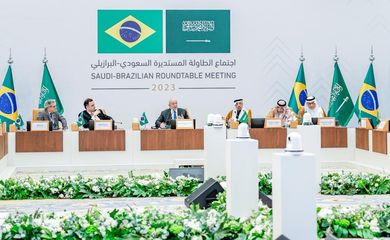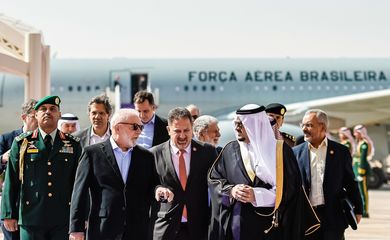Lula: Planet is fed up with unfulfilled climate deals

In his first speech at the opening of the United Nations Climate Change Conference (COP28) in Dubai on Friday (Dec. 1), Brazilian President Luiz Inácio Lula da Silva said the planet is fed up with unfulfilled climate agreements, neglected carbon emission reduction targets, eloquent and empty speeches, and financial aid to poor countries that never arrives. “The planet can no longer wait for the next generation to take action,” he declared.

At the ceremony, the president noted that humanity faces increasingly extreme and frequent droughts, floods, and heatwaves, and mentioned the drought in northern Brazil and the floods in the South. “The Amazon is suffering one of the most tragic droughts in its history. In the South, storms and cyclones have left an unprecedented trail of destruction and death,” he said. “Science and reality show us that this time we’ll have to pay earlier.”
“How many world leaders are really committed to saving the planet? Last year alone, the world spent more than $2 trillion on weapons. This could be invested in fighting hunger and tackling climate change. How many tons of carbon are emitted by the missiles that cross the sky and fall on innocent civilians, especially hungry children and women?”
The costs of climate change are not the same for everyone and have reached the poorest portions of the population first, President Lula argued. He pointed out that the richest one percent of the planet emits the same amount of carbon as 66 percent of the world’s population. “The world has naturalized unacceptable disparities in income, gender, and race.”
“Rural workers have their subsistence crops devastated by the drought and can no longer feed their families. People living on the outskirts of big cities lose what little they have when the floods sweep away everything: houses, furniture, pets, and their own children. The injustice punishing the younger generations is just one of the faces of the inequalities plaguing us.”
In his view, climate change cannot be tackled without combating inequalities. “The people going hungry are imprisoned in the pain of the present. They become incapable of thinking about tomorrow. Reducing socio-economic vulnerabilities means building resilience in the face of extreme events. It also means being able to redirect efforts towards the fight against global warming.”
“Failure to fulfill commitments undermines the credibility of the regime. We need to restore our belief in multilateralism. It is inexplicable that the UN, despite its efforts, is incapable of maintaining peace, simply because some of its members profit from war. It is deplorable that agreements such as the Kyoto Protocol or the Paris Agreements are not implemented.”
“Governments cannot shirk their responsibilities. No country will solve its problems alone. We are all obliged to act together beyond our borders. Brazil is willing to lead by example,” he concluded, citing the adjustments to Brazil's climate targets, the reduction of deforestation in the Amazon, and what he called green industrialization, low-carbon agriculture, and bioeconomy.






